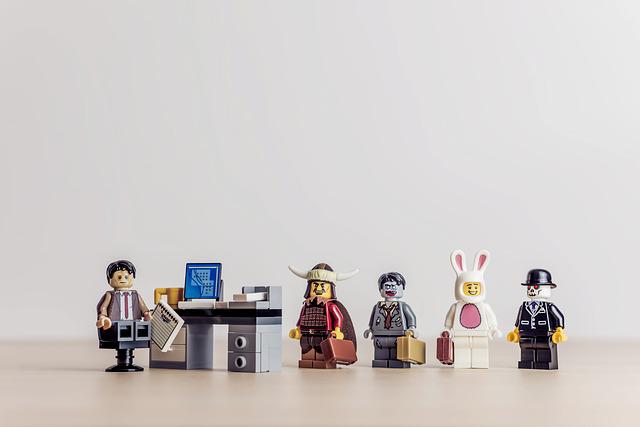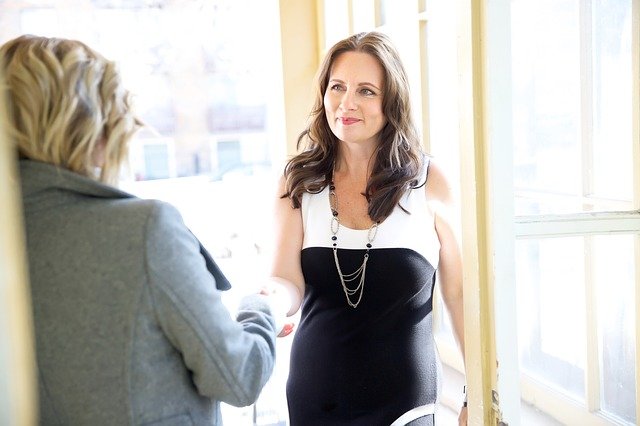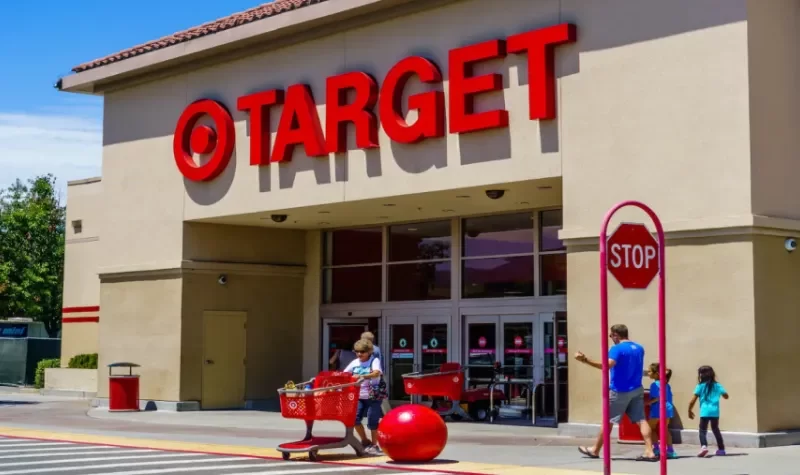There’s a good possibility you’re on the short list for the job offer if you get a second interview. What should you do when the chances of getting job after second interview? Employers often only contact applicants again if they want to learn more about them, introduce them to other employees, and assess how well you’d fit into the company’s culture. The secret to being the best candidate is to follow up with a clear interest in the position in addition to nailing the second interview.
Table of Contents
Reasons For The Second Interview Is Different
The first trial is a screening process to eliminate those who are obviously not suitable for the company. Those who enter the reexamination have a basic understanding of the company and the minimum requirements for success.
Reexamination is a way for recruitment managers to understand job seekers as a person, rather than a set of basic qualifications and experience. You are not only asked about your skills and experience; Your motivation and personal skills will be judged more in the second round.
The second round may also consist of more decision makers of the company. You may see an executive level leader and other senior team members who will eventually make the final recruitment decision.
According to twin employment website, employers will consider the following factors in the interview:
36% of employers want candidates to be able to multitask
31% of employers seek initiative
21% of employers want candidates to have creative thinking ability
12% of employers look for something else from job seekers
Although the second interview and senior employers may be daunting, if you prepare in advance, you have a greater chance to impress the board of directors.
Read about: Accepted Job Offer Haven’t Heard Back
How To Prepare For The Second Interview?
Do Research
If you haven’t done a comprehensive survey of the company before your first interview, it’s time to do it now. Even if you have done quite a lot of research, you should also do more in-depth research for the second interview.
Pay special attention to the goals, values and mission of that company. Be sure to check any news or projects they have been involved in recently, and how your special skills are suitable for them.
See “five worst second interview mistakes”
What you need to do is to prove that your qualifications and achievements not only meet the specific requirements of the position, but also help the company achieve its goals. This will set you apart from other candidates.
Be sure to review the notes you took after your first interview (you did make some, didn’t you?) The questions you are asked can let you know the priorities of this company. Then you can study these fields more thoroughly before the second interview. This will help you better adjust your answer to their feelings.
Prepare More Behavioral Problems
Standard inverted questions are usually used in the first interview to determine whether you have the required experience and skills.
The purpose of behavioral problems is to find out how you use these skills to deal with various situations at work. In other words, it’s how you behave in a particular situation. Such problems are more common in the second round of examination.
The two most common behavioral root causes are:
Tell us one
How would you handle
Read about: Low-stress Jobs That Pay Well Without A Degree?
There are many others, but these two are the most common (and I ask most often). Hiring managers like these questions because you can add any situation you like to these fundamental questions to suit your special vacancy.
So far, the most specific question is: “tell us your experience of conflict with your boss / colleagues / customers, and how you solved it.” Hiring managers like to hear about successful conflict resolution, so be sure to have a good example you can cite.
See the hiring manager’s annoying interview advice
Prepare Examples To Show Soft Skills
Soft skills are non-technical skills that are not specific to a particular job or industry. Examples of soft skills are:
- Leader
- Teamwork
- Creative ability
- Able to work under pressure
- Initiatives
- professional ethics
- Ability to solve problems
- Adaptability
- Attitude
- Communicate
- Self-management
- Willingness to learn
- Reliability
Although hard skills are the focus of most first interview, soft skills are the most concerned in the second interview. These skills determine who you are, and they are usually the main factor in determining who is hired.
Browse this list to find out the soft skills that you think are most important for the position you are applying for. Then give examples of your skills, experience and achievements to prove these skills.

Review And Practice Good Interview Etiquette
This is rarely the main aspect of your evaluation, but occasionally it will become a showdown between two candidates who perform the same in the second round.
What I mean by good interview etiquette is:
In the beginning, thank the interviewer for giving you the opportunity to interview again. You don’t want to give the impression that you are qualified to take the second interview.
Be polite and thank everyone you meet before, during, and after the interview. Some hiring managers especially ask employees who are not interviewers about their impression of job applicants. You don’t want to be the one they call rude.
Send a thank-you letter to each interviewer. Having said that, I also want to say that I have never given a good candidate this job because I didn’t receive a thank-you letter. In fact, in most cases, a decision will be made soon after the interview. Nonetheless, this shows that you are a professional and reinforces the decision to hire you.
Ask in advance if you can take notes – then be sure to take some! Suppose there may be a third interview. If so, these notes will be helpful to you.
Read about: Can You Lose A Job Offer By Negotiating Salary
Use 30, 60, And 90 Day Strategies
If you are applying for a management position, you should have a 30 -, 60 -, and 90-day plan of what you expect and how you will achieve it. Having a plan in mind ahead of time can show employers how you look in the role and how you will succeed.
Having a winning plan in place before you get the job will set you apart from other candidates.
Use real-life examples from previous experience
Hiring managers don’t want to hear what you would do in this situation; They want to know what you’ve done in the past and how previous successes or failures have set you up for success in their organization. Rely on your past experience to guide you through the interview, and refer to what you’ve learned to add more flair to your answers.
Start Building Personal Relationships
If you get along well with someone, continue to build these relationships when you talk again. If you meet new friends, ask questions about them and their work. This method allows you to show how suitable you are for the team and make people feel that you are both professional and elegant. example:
Nice to see you again, Janice. I accepted your suggestion and visited the art museum the last time I came here – you’re right, the new ceramic exhibition is great.
Fred, after you referred to the digital annual report on the Internet, I went home and looked at it – incredible charts. Will you use this method when making presentation materials in-house?
Nice to meet you, Karen. Last time I came here, I had a quick look at the sales situation, but I heard that you are now facing a unique sales challenge. I want to know more. Have you done this before?
Show charm, but don’t be boring or too familiar. You want people to think of you as someone they like to meet by the water fountain every day. Don’t think it’s not important who didn’t interview you – many companies let employees comment on potential employees to ensure that they are suitable for everyone.
Make A Plan
While the second interview is more about you personally, don’t be fooled into thinking it’s more casual. These questions may be less structured and allow for more open responses, and you should prepare a template in advance. Be prepared to offer your ideas on how to solve the problems the company is currently facing and why you were instrumental in implementing the change.
By understanding a company’s current struggles, goals, and direction, you can not only applaud their accomplishments, but also show how you can complement their business plan.
Make The Most Of The First Interview
Every time I leave an interview, there is something I later remember not mentioning. While we all have talking points and specific examples to provide, it’s not uncommon to forget one or both under pressure. If time and circumstances permit, let the group know that you have given more thought to the previous question and would like to elaborate further in the second interview.
Buttoning up all the bits and pieces shows that you are competent, thorough, and like to make sure you complete every task you tackle.
What You Should Not Do For The Second Interview?
Don’t forget to review your performance at your first interview. Write down any problems or situations that make you difficult, and plan how to deal with them better in the second interview. Brainstorm new information you can provide – new achievements, new examples, new evidence to prove how much you know about your employer.
If the second interview is actually a series of interviews, including personal interviews and group interviews, it will make you spend a long day. Don’t be surprised. You may interview managers, senior executives, department heads, and future team members. You may also visit the workplace and be taken out for dinner. Bring enough copies of your resume to all interviewers you may meet.
Don’t forget the basic rule of group interview: when you answer a question, keep eye contact with everyone in the group – not just the person who asks the question.
Don’t slack off in dressing for the interview. The second interview generally does not represent a more casual interview.
Don’t ignore talking to people other than the interviewer. Chat – don’t talk too much – receptionists and future colleagues can make you better feel how much you want to be a member of this workplace culture and make a positive impression.
Don’t be surprised if some of the people you meet are not very capable interviewers. Although managers who have received interview training usually arrange the first interviewer, some people who may talk to you in the second interview may lack training on how to arrange the interview.
If the interviewer asks about salary and benefits, don’t be caught off guard. Be prepared for negotiation. You may also be asked whether you are willing to go on business or assignment, so prepare your answer.
If the employer offers a job opportunity, don’t reply immediately. Ask for a few days to think about it.
Don’t forget to send a thank-you letter or email to everyone you meet. Yes, everyone. Aren’t you happy to collect these business cards? You can write the same basic information to everyone, but change it a little to prevent them from exchanging opinions.
Conclusion
Even though you might feel more at ease during the second interview, you are still up against other applicants.
Consider the second interview to be just as important as the first, and dress appropriately for the job you want. Keep a professional demeanor, plan carefully, and maintain your confidence in your responses as you demonstrate to them why their organization needs you.



